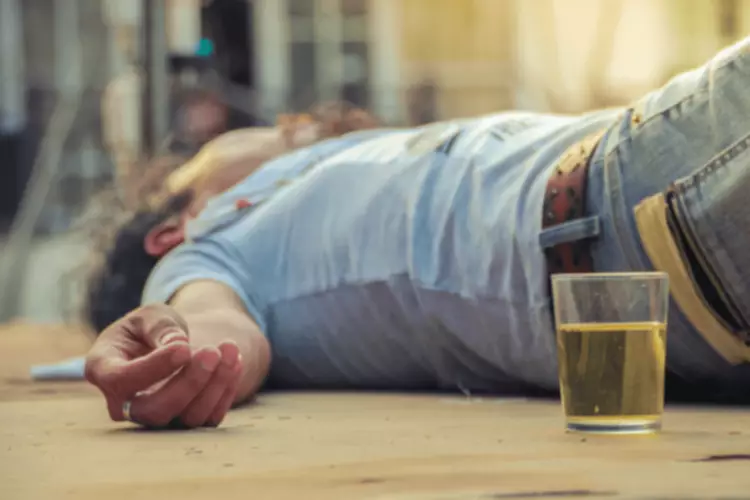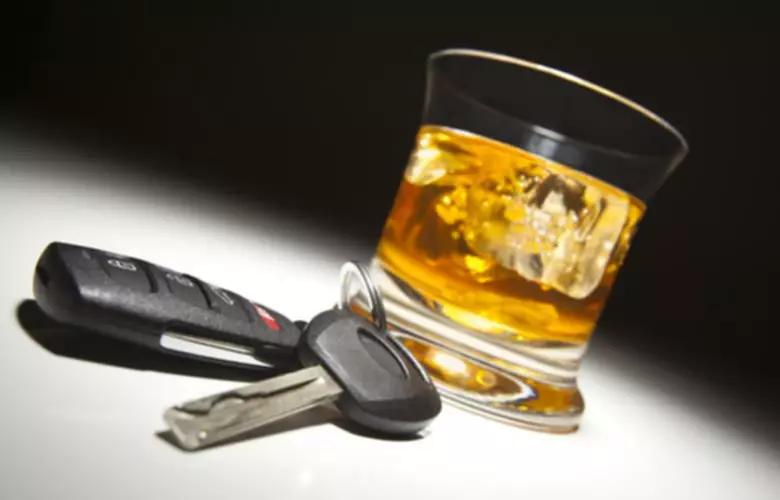
When you’re dehydrated, your blood pressure drops, which limits blood flow to your brain and causes dizziness. Of course, limiting alcohol intake and substituting water for many of those drinks during an evening out is probably the best method to avoid a painful hangover. However, for those times when one alcoholic beverage leads to more than a few more, be sure to stay hydrated and catch up on rest. Your best bet for a smoother recovery is probably some combination of nonsteroidal anti-inflammatory drug like ibuprofen, Netflix and a little downtime.
Discomfort and Stress
Well, it’s hard to know exactly – but Martins agrees that, for people who already drink caffeine, having some coffee won’t hurt. The fact is, runners like to drink – and the science even says so. A study published in Frontiers in Psychiatry, for example, found that exercise and alcohol consumption are positively correlated.

It may be possible to fake the positive feelings of alcohol

Some people may only need one or two drinks to get drunk and feel hungover the next day. You may feel much less alert, less able to remember things, and less able to make logical decisions when you’re hungover. A 2017 study found that these aspects of cognitive function were all highly impacted during a period of hangover symptoms. The fluctuations in blood sugar that accompany drinking can lead to negative moods, which might include anxiety and anger as well as mood instability. As you lose fluid through frequent urination, you’ll become increasingly dehydrated and extremely thirsty as a result, especially if you’re drinking in a hot environment that’s making you sweat, too. In the United States, drinking alcohol is largely embraced by mainstream culture, which may even promote behaviors involving excessive drinking.

Hangover symptoms: what happens to your body when you have a hangover
- «Alcohol is directly toxic on the mucosa of the stomach,» Dr. Braunstein says.
- Why do hangover shakes happen, and are they a sign of anything serious?
- While certain cultures, including the Finns, attribute using the sauna to hangover relief, only 2 to 5 percent of alcohol is excreted through urine, sweat, or breath.
- Alcohol withdrawal syndrome refers to a range of symptoms that can occur when an individual with alcohol dependency suddenly stops or significantly reduces their alcohol intake.
- Hangover perspiration can dehydrate your body even further, worsening your hangover symptoms.
They can provide guidance, support, and potentially recommend treatments or interventions to help manage your alcohol consumption. A hangover is unpleasant, why do you sweat when hungover but symptoms tend to go away within a day or so. If you drank too much alcohol and feel sick, try at-home hangover remedies like drinking plenty of water, eating some carbs and sleeping.
- The main role of all these minerals is to maintain electrical neutrality in cells, per the National Library of Medicine, which is probably how they got their name.
- A single alcoholic drink is enough to trigger a hangover for some people, while others may drink heavily and not have a hangover.
- And acetaminophen (Tylenol, others) may cause serious liver damage if taken with too much alcohol.
- The symptoms of alcohol withdrawal typically begin a few hours after the last drink and peak within hours.
- Hangover symptoms, on the other hand, begin once your blood alcohol level drops significantly.
- A 2019 study published in Personality & Individual Differences found that «hangxiety» was much more likely in people who were naturally shy.

Sometimes you may also appear to have alcohol intolerance when you are in fact reacting to another ingredient in your drink. Along with increased urination, not drinking enough water (because you’re busy boozing) and other common hangover symptoms (like diarrhea and sweating) dehydrate you even more. A sauna detox is an invigorating way to sweat out the toxins of the night before, increase alcoholism your circulation, and relax. In this article, we’ll share everything you need to know about using a sauna for hangover relief — from the science behind sweating out your hangover symptoms to how to use the sauna when you’re hungover.
- A minimum of minutes is recommended to raise your body’s core temperature and the benefits of a sauna will last much longer if you stay in for a good length of time.
- The most common and severe occur between 24 and 72 hours after the last alcohol drink.
- If your night sweats are a result of alcohol withdrawal, you could also try cutting down on how much you drink.
Identifying Alcohol Dependency

Second, the type of alcohol you drink can also make a difference in the length of your hangover. Darker drinks, such as red wine, whiskey, and beer, contain more congeners (chemical by-products of fermentation) which can irritate your stomach and increase your chances of feeling worse than normal. “No amount of exercise can reduce the effects of a hangover, so it’s better to rest and drink plenty of water rather than engaging in vigorous activity,” added Leyshon.
- One of the side effects of drinking too much is brain fog or being unable to concentrate.
- If you or someone you know is experiencing symptoms of alcohol dependency, it is advisable to seek medical assistance.
- But if you only have a slight hangover, you may want to consider a gentle workout such as stretching, walking, or yoga.

Aún no hay comentarios, ¡añada su voz abajo!